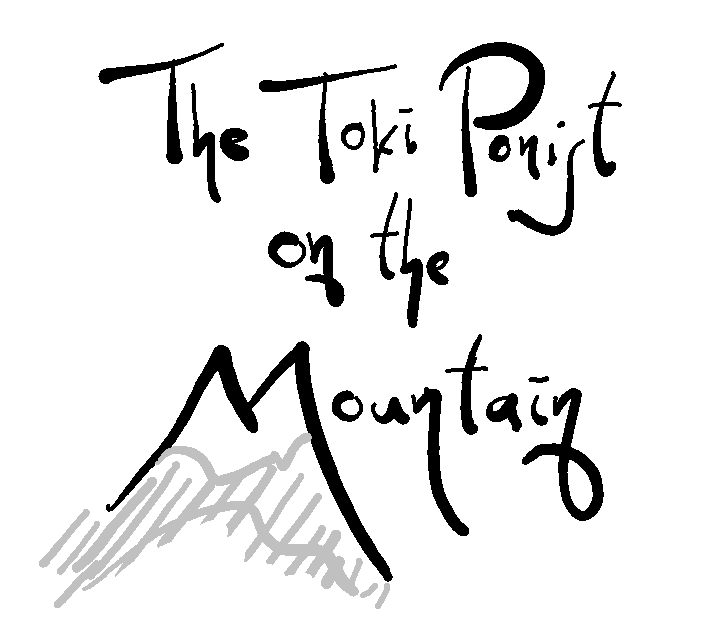sina pana e nimi pi jan sona suli tawa jan la, sina weka sona.
Once you start calling someone a genius, you have stopped understanding what they are saying. — Toki Ponist Pu
July 2021
These are the words as recovered from the awoken well:
jan Nimisu li toki e ni:
- sina jan nasa.
mi sona ala e sina.
jan Sipi li toki e ni: pona!
jan Nimisu li toki e ni:
sina jan sona sewi!
jan Nimisu li pini e oko sina.
jan Sipi li moku e kili.
jan Nimisu li open e oko sina. kili li weka.
jan Sipi li toki e ni: ni li sona sewi.
Here follows a relaxed translation:
Nimisu throws himself at Tipi’s feet. He says: “I am so sorry! I thought you were crazy, but I just did not understand.” Tipi says: “Good!” Nimisu continues: “Now I finally understand and praise you as the genius that you are!” Tipi shows Nimusu a piece of fruit. Nimisu closes his eyes. Tipi eats the fruit. Nimisu opens his eyes. The fruit is gone. Nimusu says: “What?” Tipi says: “This is genius.”
Associative musings:
People say smart things and people say silly things. If you get more attached to the speaker than the spoken you become a repeater of ideas and not an understander of ideas. There is a simple test for this. If you recognize someone as a genius you attribute to him magical properties. Magic is by definition used for processes you don’t fully understand and control.
It is perfectly fine to worship someone for their genius, but recognize that this implies your lack of understanding in their message. So if they tell you to do something, you are in no position to judge whether what they ask of you is sound. Nor can you dispell it either, they are geniuses after all.
Read a newer koan (For a child, any small problem can become a trauma.)
Read an older koan (The patience with which adults can speak to children with, you should use with other adults.)
